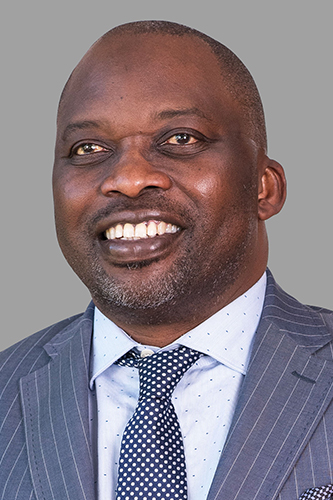
The Chairperson of the Portfolio Committee on Higher Education, Science and Technology, Ms Nompendulo Mkhatshwa says Covid-19 has raised the importance of investing in science, technology, research and innovation. The committee was briefed recently by the Departments of Science and Innovation (DSI), and of Higher Education and Training (DHET) on these departments’ programmes to support President Cyril Ramaphosa’s post-Covid economic reconstruction and recovery plans (ERRPs).
Ms Mkhatshwa said ongoing work of the two departments is an assurance that the country is resilient and has the strength to respond comprehensively to future disasters. “If we are able to strengthen research and innovations, not only will government benefit, but the private sector will benefit too. We need to remind the private sector how the work of the DSI has assisted them during this pandemic and the recent unrest in KZN [KwaZulu-Natal] and Gauteng.”
The Director-General of DSI, Dr Phil Mjwara, and DHET’s Deputy Director for Skills Development, Mr Zukile Mvalo, outlined the ERRPs priorities and programmes, such as CoalCO2-X, which will reduce the use of pollutants and improve technological competitiveness, among other things.
Another programme is Platinum Valley, which involves rollout of hydrogen technology along the Limpopo-Durban corridor. The DHET has strengthened and focussed its training interventions, especially in TVET and CET colleges.
Mr Mvalo informed the committee that the interventions were demand-led. He indicated that 54 pilot centres have been established to diversify the programme and qualifications. In addition, together with the CET colleges, these were being capacitated to ensure compliance with accreditation requirements.
Committee members asked questions about the decadal plan, the green economy, the role of the Africa Free Trade Agreement, the importance of infrastructure and transport and energy security in the government’s recovery efforts. Members also emphasised the importance of achieving clean audits, especially for partner entities who play a supporting role to the ERRP.
Ms Mkhatshwa said the committee was in full support of the call to localise and increase local employment and manufacturing. “Some of these plans should have been long-standing and we should be ahead in terms of having achieved them. We should be much more further ahead with these programmes.” She emphasised the importance of stakeholder consultation and planning, as well as interdepartmental planning with departments of transport, agriculture, minerals and energy.
Committee member Ms Annelie Lotriet said the although the department has interesting plans, it needs to ensure that there is an uptake from other departments. “Now we are sitting with budget cuts and municipalities that are bankrupt. We do not want science and technology programmes to remain a paper exercise.”
Another committee member, Ms Chantel King, agreed and said in order to achieve what DSI was proposing there needed to be a collaborative approach. She asked if departments are meeting with a view to sharing plans and whether local government had been involved in such plans.
Dr Mjwara asked that the department be allowed to come back to brief the committee adequately on all the plans and programmes. “We available to share what we doing and the roles of other departments. Contribution to the ERRP will be informed by the decadal plan that we are now completing. Key to some of the proposals is lessons we learnt and how the work of the department has not been taken forward by other government departments.”
He said the National Treasury has agreed to work with DSI in identifying areas where budget for science and technology innovations could earmarked in departmental budgets. “Investments that had been made could be repurposed to support the ERRP,” he said.
Mr Mvalo revealed that the apprenticeship grant had been increased from R165 000 to R206 000 per apprentice opportunity. He said the department is hopeful that as vaccinations increase, employers will open up.
Sibongile Maputi
6 September 2021

